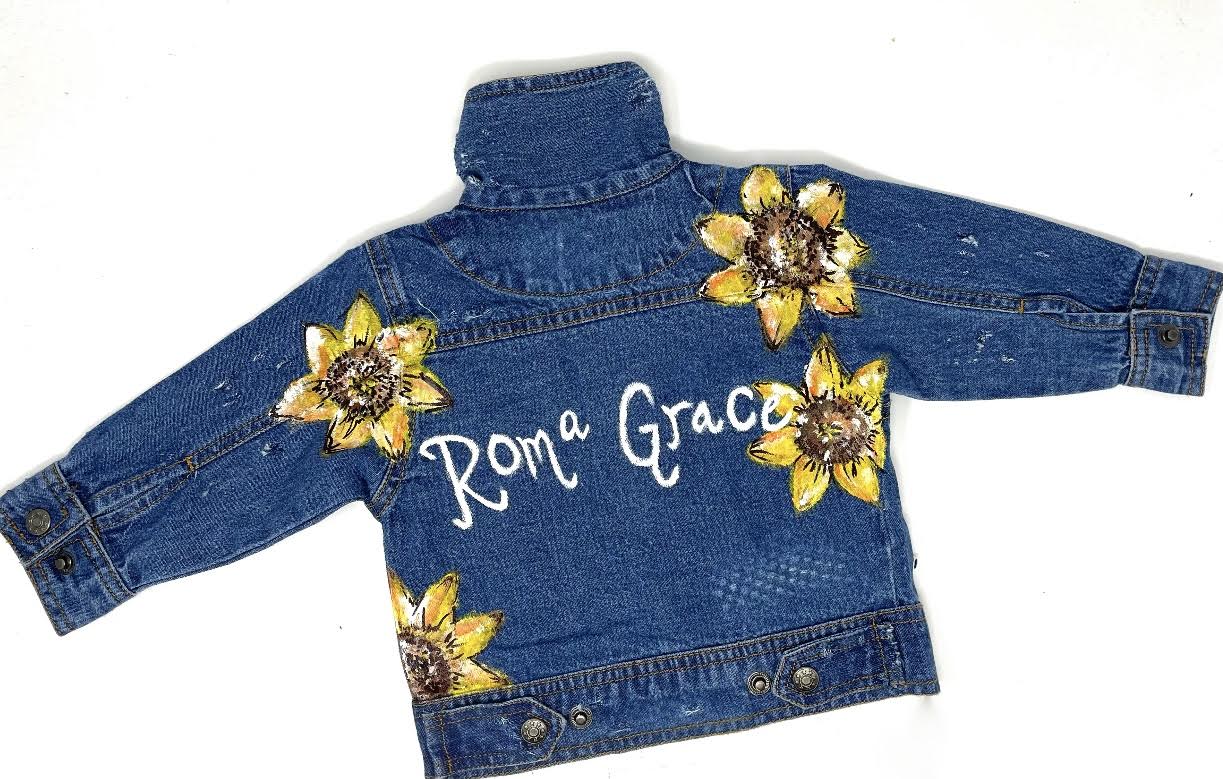Lifestyle
Artistic Legacy in the Spotlight – The Greenspans’ Journey of Keen to be Seen

The world of childrenswear has witnessed a transformative wave with the emergence of Keen to Be Seen. The dynamic mother-daughter duo, Lesley and Ellyn Greenspan, are at the helm of this fashion-forward endeavor. Their collective passion, creativity, and resilience have shaped this innovative brand and ignited an artistic legacy in the fashion industry.
Lesley Greenspan’s roots in the fashion world run deep. Growing up in Westchester, she was the eager apprentice to her mother, Ellyn, a successful fashion designer who managed one of the largest dress companies of her time. Ellyn, a Moore College of Art alumna, is a seasoned entrepreneur with a worldwide presence through her businesses, Cowgirls Heehaw and Bubbles Larue.
Before she embraced her role as a business owner, Lesley’s career path was as diverse as it was enriching. From internships with the renowned Elie Tahari to ventures in the food industry, Lesley’s experiences were varied and expansive. Yet, her Fashion Institute of Technology (FIT) background solidified her passion for fashion.
March 2020 marked a significant turning point in Lesley’s journey. As COVID-19 gripped the globe, Lesley and Ellyn’s compassionate and entrepreneurial spirits joined forces. With a surplus of fabric and a mother’s ingenuity, they began creating masks. Their unique designs, facilitating protection and communication, rapidly gained popularity, with celebrities joining their growing customer base. This led Lesley to set up a Shopify store, skyrocketing their outreach and laying the foundation for Keen to be Seen.
Keen to be Seen operates two factories in Queens and Brooklyn, employing a dedicated team of 22 workers each. The company specializes in childrenswear denim, with a flagship product that exemplifies its commitment to innovation – the Pocket It Jacket. This unique jacket, adorned with clear pockets, allows children to showcase their personality and accomplishments, promoting self-expression and engagement. The jacket’s design was tested and loved by children with learning disabilities, reinforcing its versatility and appeal.
Lesley envisions a promising future for Keen to Be Seen, with aspirations of becoming a household name. She actively showcases her innovative products in schools, country clubs, and trade shows and remains committed to supporting various foundations. Moreover, Lesley dreams of seeing her jackets being worn in hospitals. Inspired by her mother’s pocket-ed jacket designed for an insulin pump, she believes these jackets can provide comfort and creative outlets to children undergoing treatment.
The journey of Keen to Be Seen is an artistic legacy, blending inspiration, compassion, and creativity into a brand that celebrates children and their individuality. Follow their journey on Instagram @keen_tobeseen or explore their innovative range on their website. As the spotlight shines on the Greenspans’ journey, their artistic legacy continues to inspire and evolve, just like the children they design for.
Lifestyle
Powerful Corporate Gifting Strategies to Build and Strengthen Business Partnerships

If you want to build and strengthen business partnerships with your clients and top investors, there are a few key steps you must take. One essential strategy is corporate gifting. This simple act goes beyond building a partnership. It will also increase your customer retention rate and promote your business even beyond the shore of your country.
But before you consider gifting any item, there are some strategies to put in place. This will ensure your gift makes a lasting impression and resonates well with your clients. Below are powerful corporate gifting strategies to build and strengthen business partnerships with your clients and top investors.
Choose a Personalized Item
Rather than choosing an ordinary gift for your clients and investors, opt for a personalized item. Customised corporate gifts such as T-shirts, coffee mugs, and bags create a stronger emotional connection than generic gifts. They also leave a more lasting impression than most other gift types.
Imagine how investors and your clients will feel when you beautifully inscribe their image or favorite quotes on a T-shirt. Of course, they will feel valued, appreciated, and ready to invest more in your business.
Consider Their Culture and Background
As an entrepreneur, it’s essential to be culturally competent and sensitive. Your gifts should resonate with your clients’ and investors’ cultural backgrounds. Otherwise, they may be quickly discarded or overlooked. If your investors and audience are predominantly of Black heritage, consider giving them a custom T-shirt featuring a map of Africa or inspirational quotes from iconic Black leaders.
Their religious beliefs are also important. Specific religions may find some images or symbols inappropriate. For instance, if you’re giving a gift to a Muslim investor, avoid designs that include images like pigs, as they are considered offensive in Islamic culture.
Consider a Functional Gift
You should also consider the gift’s functionality. A gift that can be used every day will be more valuable than an impractical one. Even if the gift is expensive but doesn’t have any functional purpose, it won’t serve the purpose it was intended for.
Instead of purely sentimental keepsakes or abstract gifts, consider practical items like pens, notebooks, backpacks, coffee mugs, umbrellas, or water bottles. Just make sure the gift is well-designed and features your brand logo and identity. This not only increases brand visibility but also helps strengthen the connection between you and your investors.
Tie it to a story
Tie your gifts to a story to make them more memorable and emotionally meaningful. For example, if during your business’s early days, your employees always worked tirelessly day and night, you could opt for a custom hourglass. Clients and investors who receive such a gift will appreciate your business’s journey of patience and perseverance.
Offer Quality Gifts
Gifts given to investors or clients who have significantly contributed to your business growth should reflect their value. They shouldn’t be cheap or low-grade items. The gift doesn’t have to be trendy or widely popular, but it should come from a reputable and high-end brand. This will give your gift more credibility. Besides, the recipients will feel comfortable to use the gift among their colleagues.
-

 Tech4 years ago
Tech4 years agoEffuel Reviews (2021) – Effuel ECO OBD2 Saves Fuel, and Reduce Gas Cost? Effuel Customer Reviews
-

 Tech6 years ago
Tech6 years agoBosch Power Tools India Launches ‘Cordless Matlab Bosch’ Campaign to Demonstrate the Power of Cordless
-

 Lifestyle6 years ago
Lifestyle6 years agoCatholic Cases App brings Church’s Moral Teachings to Androids and iPhones
-

 Lifestyle4 years ago
Lifestyle4 years agoEast Side Hype x Billionaire Boys Club. Hottest New Streetwear Releases in Utah.
-

 Tech6 years ago
Tech6 years agoCloud Buyers & Investors to Profit in the Future
-

 Lifestyle5 years ago
Lifestyle5 years agoThe Midas of Cosmetic Dermatology: Dr. Simon Ourian
-

 Health6 years ago
Health6 years agoCBDistillery Review: Is it a scam?
-

 Entertainment6 years ago
Entertainment6 years agoAvengers Endgame now Available on 123Movies for Download & Streaming for Free
